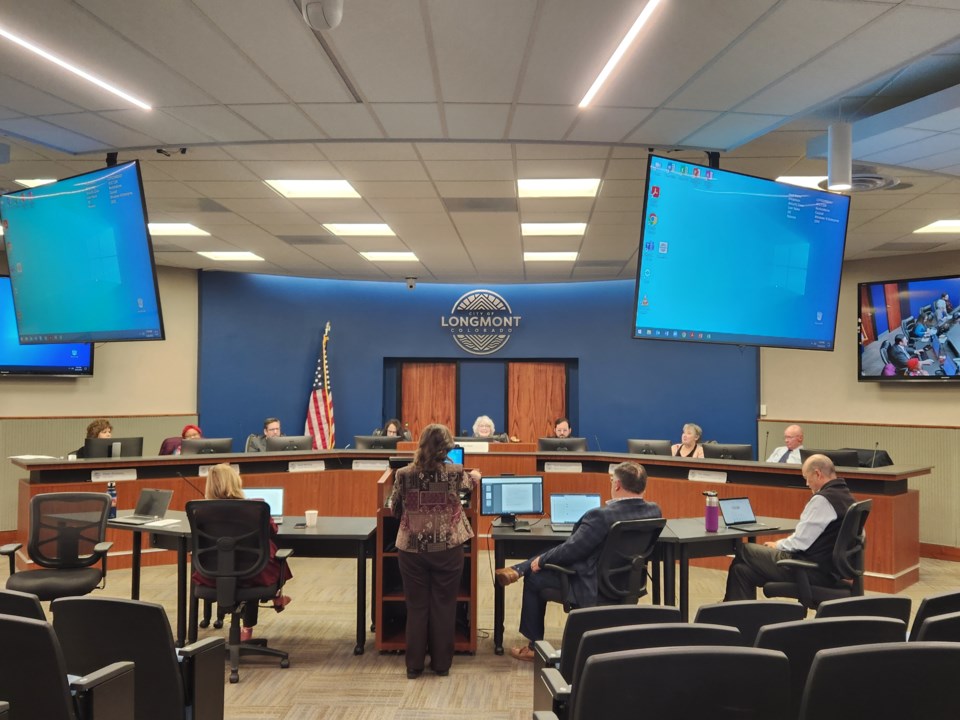Joining the Planning and Zoning Commission, Longmont City Council will no longer hear testimony on certain topics until their public hearing.
On Tuesday, council unanimously approved an amendment to their rules of procedures giving them authority to prohibit public comment that concern upcoming quasi-judicial matters. As per council’s rules of procedure, the change will come back at the next council meeting to be officially approved.
The change is nearly identical to the one approved by the Longmont Planning and Zoning Commission last week. Both bodies sometimes act in a manner similar to a judge, known as a quasi-judicial proceeding, which requires that the planning commission not consider any evidence received outside the record of the proceeding. These are also known as ex parte communications.
City Attorney Eugene Mei explained that ongoing opposition to a specific development were presenting what he described as intentional, organized ex parte communications at planning and zoning meetings public comment period. Mei said city staff informed this group of concerns with the presentations and asked them not to do that.
“Unfortunately, we thought that the ex parte communications were going to continue, and it is the government’s obligation to provide a fair hearing under the due process requirements,” he said.
Mei also emphasized that the regulation applies equally to all parties, whether it’s the developer or the public, so no stakeholder can influence the council or commission’s decision before a public hearing on the matter.
This only applies to quasi-judicial matters, things like preliminary plat applications, rezoning applications, conditional use applications and variance applications. Other topics like annexation or the city’s comprehensive plan are policy setting in nature and not subject to the due process protections, so the public can comment on them at any time.
Additionally, the due process protections come into place after the developer has submitted a complete application to the city. If it hasn’t, the public is still able to speak on the topic.
A few members of the public spoke in opposition to the rule, calling it a “gag order,” and the council raised some concerns about how this would affect the rights of the public.
“I’m a little concerned about this because I don’t want this to have a chilling effect on our public,” Councilmember Sean McCoy said.
Mei noted that allowing members of the public to speak in opposition on a quasi-judicial matter outside of the hearing could put the city at legal risk. He added that the occasional obscure comment isn’t really a concern, but organized, concerted efforts.
Community members who do want to speak on topics not allowed during public comment can still submit written comments to the city that will be included in the public hearing packet, or attend the public hearing and share their comments then.
Mei said the city is also working to communicate more clearly with the public about what topics are considered quasi judicial and where they can direct their input in those cases.
Mayor Pro-Tem Aren Rodriguez said that it would be important to educate the public that this is something that protects the city from lawsuits.
“This is a legal issue,” he said. “This isn’t some shady, council doesn’t want to hear your position issue.”
Council is expected to implement the procedure change at their next meeting.



